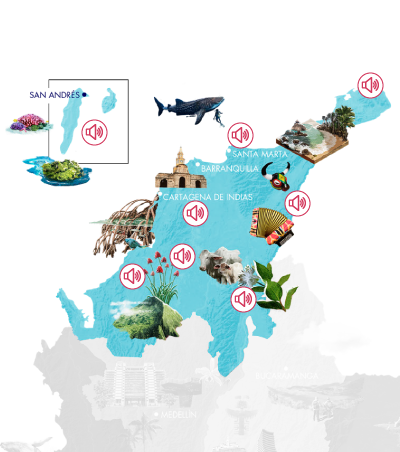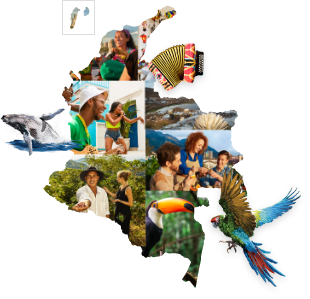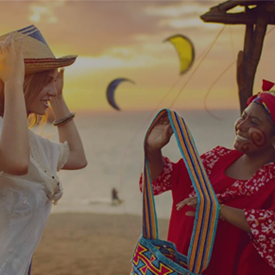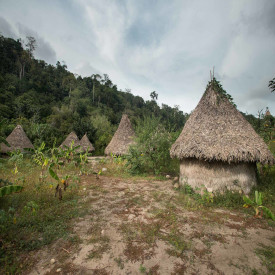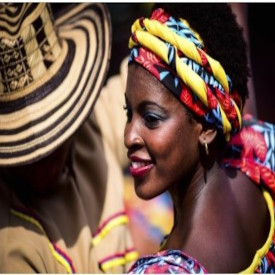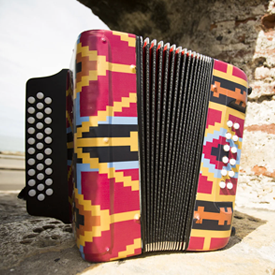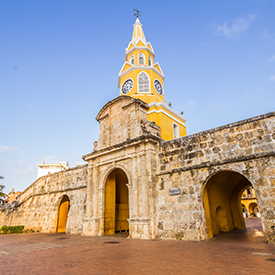The department of Bolívar, a bridge between the past and the present history of Colombia
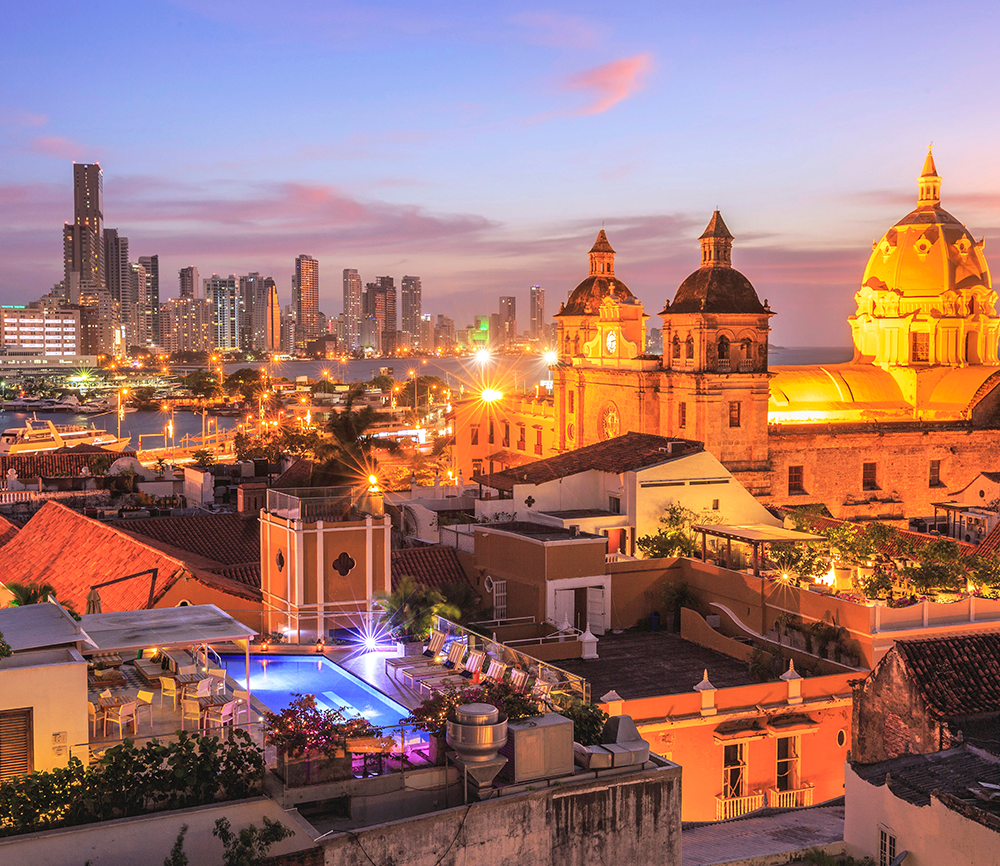
Credit: ProColombia
The department of Bolívar is one of the most important and fastest growing territories for tourism in the country. Its size derives from its heritage architectures, African and indigenous cultures, in addition to its festivals that promote literature, art and gastronomy.
This department is part of the tourist region of the Greater Colombian Caribbean. The land of indigenous knowledge such as the Wayúu, Koguis or Zenúes, the Garcia-Khaquian legacy and great natural landscapes that make this territory much more than the Caribbean.
Culture
This is a department of indigenous, African, Syrian, Lebanese and European heritage that for generations have contributed to the cultural, gastronomic, historical, musical and architectural development of the towns and cities of the territory.
Bolivar is home to two important indigenous communities. The Zenú people who have made great contributions of goldsmithing and pottery, in addition to their main activities are handicrafts and agriculture. On the other hand, for the Mokaná, horticulture is the main work activity.
There is also San Basilio de Palenque, the first free town in colonial America. In 1961 it was declared Cultural and Intangible Heritage of Humanity by Unesco. It is from one of the most important communities in the country thanks to its contribution to history, music and culture.
Sites
Bolívar is a privileged department. Here, the Magdalena River connects with the Andes Mountains and the Caribbean Sea. In addition, it has places of great historical, cultural and tourist importance such as Castillo San Felipe de Barajas, the Walled City, Corales del Rosario and San Bernardo National Natural Park, Plaza de Bolívar, Cartagena de Indias Cathedral and Tierra Bomba.
Highlight: The Walled City was declared a Historical and Cultural Heritage Site by UNESCO in 1984.
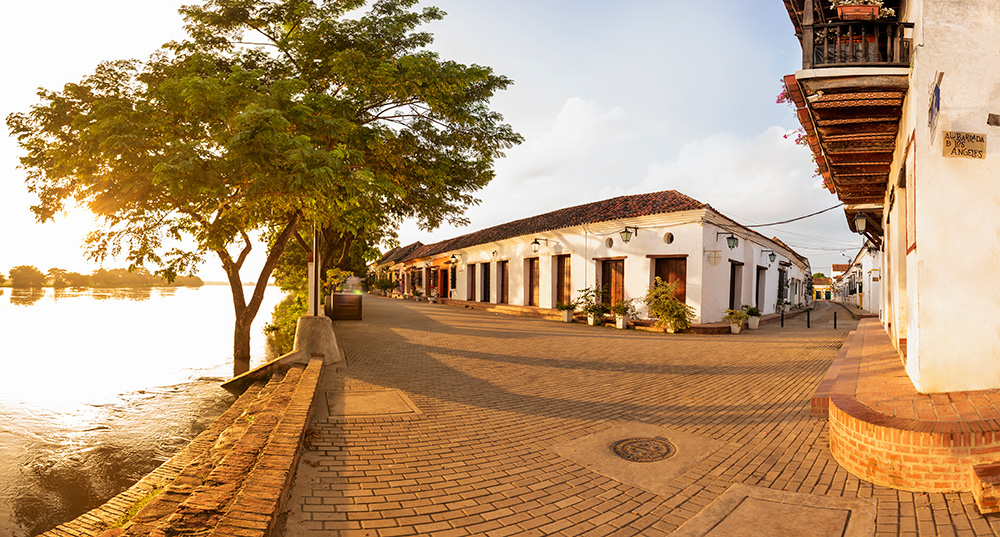
Photo caption: Mompox is one of the best-preserved colonial towns in Colombia.
Within the offer of the department there are also places such as the Fort of San Bernardo de Bocachica, Plaza de Santo Domingo, Cathedral of Santa Catalina de Alejandría, Plaza de los Coches, Plaza de la Trinidad, Isla Barú and Islas del Rosario.
Highlight: Coral reefs are home to 25% of all marine species in the world. In addition, they are important because they serve as protection for mangroves and seagrass meadows.
Gastronomy
The traditional food of the department of Bolívar is very varied and exquisite. Thanks to its fusion of Syrian, Lebanese, African and indigenous cultures, dishes such as fried fish, Cartagena black post, rice with coconut, egg arepa, Cartagena ceviche and sweets such as panela melcocha, cubanito, cheese diabolin, tamarind balls, enyucado, cocadas and sweets (typical preparations that are made at Easter) are derived.
Featured: Download the brochure about the department of Sucre and learn more about its diversity of traditional dishes.
Festivities
The department of Bolívar is a cultural, artistic and gastronomic land. So it celebrates festivals of international notoriety such as Hay Festival, Cartagena International Film Festival and Cartagena International Music Festival.
Highlighted quote: Hay Festival Cartagena de Indias is one of the festivals with the greatest significance in the country. Because it is an event that promotes topics relevant to the visual arts, cinema, literature, journalism and the environment.
Likewise, you can appreciate the musical, religious and culinary expressions such as the Bullerengue Festival of María la baja, Andrés Landero International Cumbia Festival, National Bagpipe Festival of San Jacinto Bolívar, Drum Festival, Fisherman's Festival in La Boquilla, Fiestas de Nuestra Señora de la Candelaria and Fried Festival.
Music
The department of Bolívar is known for being a land of folklore and musicality, from it musical genres such as champeta and rhythms such as bullerengue are derived.
It is also worth mentioning artists such as Totó la Momposina, La Niña Emilia, Petrona Martínez and Pedro Ramayá.
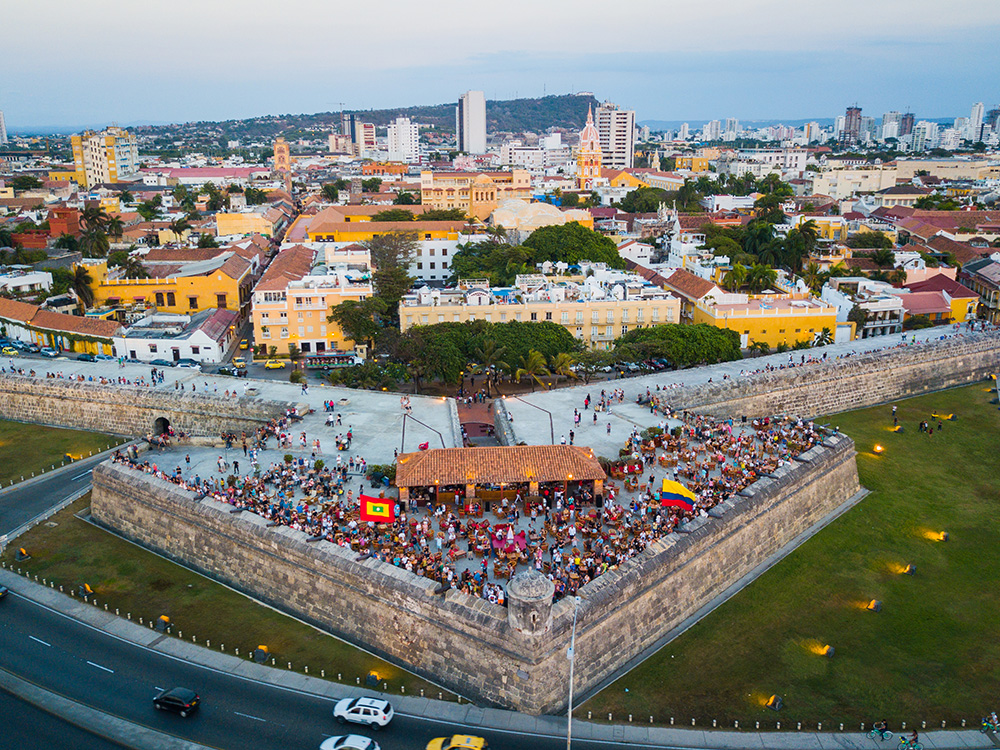
Photo caption: The Walled City is one of the emblematic destinations of Cartagena de Indias.
Finally, the department of Bolívar is a historical, cultural, natural legacy that has allowed to preserve the identity of the country. Thus achieving to be one of the great tourist epicenters of the region.




